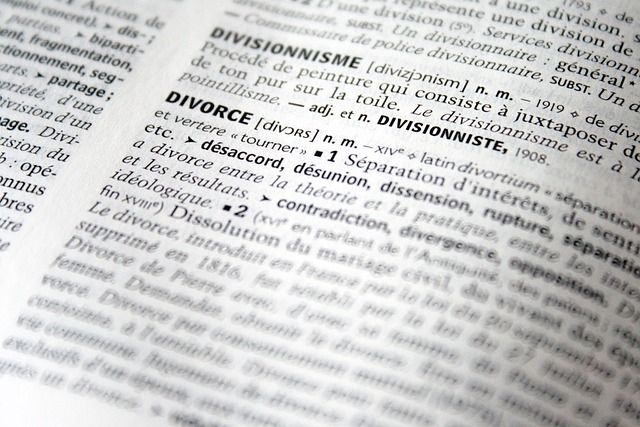Dividing a business during divorce requires strategic planning and professional guidance. Appraisals, financial advice, and mediation navigate complexities. Deciding ownership, assets, and future income streams is crucial for equitable division. Legal specialists ensure fair market value determinations and protect post-divorce financial stability. Strategic restructuring and agreements safeguard businesses and couples' futures.
“Divorce can be a challenging process, especially for business owners navigating complex financial matters. When relationships end, understanding how to divide businesses becomes crucial. This comprehensive guide offers valuable insights into managing your assets during divorce, focusing on key aspects like business valuations, partnerships, and income protection. Learn effective strategies to ensure fair division of business assets while mitigating legal complexities, enabling a smoother transition towards post-divorce success.”
- Understanding Business Valuations in Divorce
- Navigating Shared Partnerships During Separation
- Protecting Future Income Streams in Mediation
- Strategies for Dividing Business Assets Fairly
- Legal Considerations for Business Owners Going Through Divorce
- Rebuilding After: Post-Divorce Business Planning
Understanding Business Valuations in Divorce

When it comes to a divorce involving a business, understanding its value is crucial for a fair division. Business valuations go beyond simple book values and consider factors like market position, future growth potential, and intellectual property. This process requires expertise; professional appraisers or financial advisors can provide insights into the business’s current and future worth. Accurately assessing a business ensures that both parties receive a proportional share during mediation.
In many cases, couples co-own businesses for years, making it complex to separate them without impacting operations. Dividing a business in a divorce involves strategic planning. This includes deciding on methods like asset division, buyout agreements, or selling the business outright. Each approach has its implications for cash flow and future income streams. Guidance from lawyers specializing in family law and business mediation is essential to navigate these complexities.
Navigating Shared Partnerships During Separation

Dividing a business during a divorce can be a complex process, especially when it comes to shared partnerships. As business owners separate, it’s crucial to navigate this aspect carefully to ensure a fair and amicable settlement. One of the primary concerns is maintaining the stability and value of the business, which often involves delicate negotiations.
During mediation, couples must decide how to divide ownership, assets, and responsibilities. This may include restructuring partnerships, selling shares, or creating new agreements that protect each party’s interests. Open communication and transparency are key; both parties should disclose all relevant financial information to facilitate a just division of the business, ensuring a secure future for everyone involved.
Protecting Future Income Streams in Mediation

During mediation, protecting future income streams is a critical aspect for business owners facing a divorce. As part of the division of business in divorce proceedings, it’s essential to ensure that ongoing revenue sources are considered and safeguarded. This may involve restructuring ownership, implementing clear post-divorce operational guidelines, and establishing protective measures against potential interference from the other spouse.
Mediation allows for collaborative problem-solving, enabling both parties to negotiate terms that preserve their future economic stability. By focusing on maintaining income streams, business owners can mitigate financial risks and ensure a smoother transition following the divorce. This is particularly important given that a successful business often represents a significant portion of a couple’s overall wealth.
Strategies for Dividing Business Assets Fairly

When a divorce involves a jointly owned business, dividing assets fairly is crucial. Business owners should consider employing several strategies to ensure an equitable split. One approach is to conduct a thorough and independent business valuation to determine the current worth of the enterprise. This process provides a clear picture of each partner’s stake, enabling them to make informed decisions during mediation.
Additionally, establishing a fair partnership structure can facilitate the division. This might involve restructuring ownership, where one partner buys out the other or considers a sale of the business to an outside party. Protecting future income streams is also vital; partners can agree on terms to continue operating together temporarily or set up maintenance payments to ensure financial stability for both parties post-divorce.
Legal Considerations for Business Owners Going Through Divorce

When a marriage ends, the process of dividing a business in divorce becomes a complex legal consideration for business owners. This is especially true if the enterprise has been established together and holds significant value within the partnership. Legal professionals specializing in family law and business disputes can provide guidance tailored to these unique circumstances.
During mediation or court proceedings, business owners must navigate various aspects like determining fair market value, negotiating shared partnerships, and ensuring the protection of future income streams. Each aspect requires careful consideration as it directly impacts the post-divorce financial stability of both parties. Understanding legal rights and obligations is crucial to achieving a mutually agreeable outcome, fostering a smoother transition, and allowing for continued success in separate business ventures.
Rebuilding After: Post-Divorce Business Planning

After a divorce, rebuilding a business can be both an exciting and daunting prospect. The process begins with careful planning to navigate the complexities of dividing the business fairly. This involves a comprehensive understanding of its current value, future prospects, and any shared partnerships or agreements. Engaging professional advisors, such as lawyers and accountants, is crucial to ensure a smooth transition and maximize each party’s share.
The goal is to create a clear roadmap for the future, protecting income streams and ensuring stability. This might include restructuring the business, renegotiating terms with partners, or exploring new opportunities. With the right strategies in place, business owners can move forward, fostering growth while maintaining a sense of security post-divorce.
